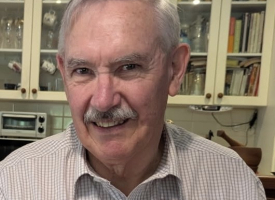Health Savings Account encourages young people to take out private health insurance
The AMA has released a new position statement on a Health Savings Account, which would be voluntary and aim to help patients meet out-of-pocket health costs by operating in a similar way as contributory superannuation accounts.

The AMA has released a new position statement on a Health Savings Account, which would be voluntary and aim to help patients meet out-of-pocket health costs by operating in a similar way as contributory superannuation accounts.
The AMA has proposed a new health savings scheme to give young people an incentive to obtain and retain their private health insurance. This will be part of helping to restore the long-term viability of private health insurance.
The scheme is set out in the AMA’s new position statement on the Health Savings Account, which aims to help patients meet out-of-pocket costs that are not covered by public funding or private health insurance.
The Health Savings Account would be voluntary, operate in the same way as contributory superannuation accounts, and encourage people to make provision for their future health costs.
The latest data from the Australian Taxation Office (ATO) says more than 327,000 Australians are paying the Medicare Levy Surcharge (MLS) rather than taking out private health insurance. With wages continually increasing, more young Australians will reach the MLS threshold of $90,000 where they will pay 1 per cent tax if they do not have private health insurance.
Young people often weigh up the cost of the MLS versus paying private health insurance to meet short-term costs.
More needs to be done to provide young people with value from private health insurance and keep them engaged with private health insurance for a lifetime. Combining a lower cost private health insurance policy with a Health Savings Account represents greater value to the individual and allows them to retain that value for their own health needs in future years.
The Health Savings Account would offer a new source of private revenue to boost the value of private health insurance to younger people and by keeping them engaged with private health insurance, the scheme would benefit the entire Australian community.
The Health Savings Account would not be tax deductible and rewards people equally, regardless of income level, with lower-income earners benefiting more as a share of their income.
The Government would be asked to make a fixed co-contribution to help boost savings further. Investment earnings from Health Savings Accounts would be treated consistently with superannuation and given concessional tax status.
The funds could only be used for defined health needs with fund withdrawal for non-medical purposes resulting in co-contributions and tax concessions being returned to government.
By making a small contribution of their own savings towards future healthcare needs, people can buy a private health insurance policy that is less expensive while offering the same coverage.
The combination of lower-priced policies, retained value of their own future health costs and avoiding the MLS is a strong incentive for younger members to take out private health insurance.


